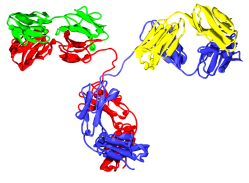 Who should get one? Sometimes it can be hard to cut out foods you only ‘think’ are causing your symptoms. I have noticed in practice that is much easier for people to make dietary changes when they see the results of the test. I would always recommend homeopathic treatment first, but the food sensitivity testing can be a good supplement to treatment.
Who should get one? Sometimes it can be hard to cut out foods you only ‘think’ are causing your symptoms. I have noticed in practice that is much easier for people to make dietary changes when they see the results of the test. I would always recommend homeopathic treatment first, but the food sensitivity testing can be a good supplement to treatment.
What is it? Food sensitivities are delayed reactions to specific foods that are triggered by IgG antibodies. There is a growing body of evidence to support the clinical benefits of eliminating IgG reactive foods from the diet. IgG food sensitivities have been implicated in migraine headaches and irritable bowel syndrome (alternating diarrhea and constipation). Bloating and indigestion are also common food sensitivity reactions, as is fatigue. Continued consumption of reactive foods may contribute to weight gain and/or difficulty losing weight. Eczema is also commonly associated with food reactions. Because IgG food reactions take hours or days to develop, this makes it difficult to determine which food is responsible for the reaction without doing testing. -taken from Rocky Mountain Analytical Read full text here
When do I get the results? After the test is received by the lab, processing time is 14 days. I will receive a notification once the results are in and will forward them to you. It is also a good time to have an appointment as we can discuss the findings in light of your case and make any necessary changes to your treatment schedule.
Where do I do the test? The test is self administered at home. I will go over how to do it in our appointment and here is a video too.
Why should I get the test done? The test is useful if you know you have to make dietary changes but are not clear on what foods you are sensitive to.

